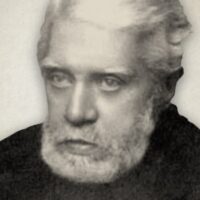
Article 25 – Reception Of Christians From Other Churches
Articles Of The Faith And Order Of A Primitive Or Strict And Particular Baptist Church Of The Lord Jesus Christ, Based On The Declaration Of Faith And Practice Of John Gill, D. D., 1720
XXV. Reception of Christians from other Churches.
We believe that, should Christians, belonging to Churches of another Faith and Order desire membership with us, such should be received on a confession of their experience and Faith; but that their Baptism should be accepted as valid, if they were immersed as spiritual believers “in the name of the Father, and of the Son, and of the Holy Ghost.”
Annotations:
Note 1.—This deals with our conduct towards religious communities whose standing we, without questioning the personal godliness of their Members, cannot formally recognise aa sister Churches (pages 135 and 204), and states how a Christian who has hitherto worshipped with such a community should be received into our Fellowship.
A letter prepared at the request of the Church he desires to join is first forwarded to the Minister or Secretary of the Chapel he has attended, courteously and in a brotherly spirit asking for a confirmation of his statements and a testimonial to his moral and Christian character.
Note 2.—This answered, the brother is required to make a Confession of his Experience, with special reference to the commencement of his religion and his views on matters of Doctrine and Practice. This the injunction to “keep the unity of the Spirit in the bond of peace” necessitates, (Eph. 4:3.) We desire none to join whom we cannot wholly trust; and we cannot, in so important a matter, rely on the judgment of a Christian assembly whose Faith and Order are, as we think, unscriptural. Those who seek our Fellowship must be one with us, or they might prove intruders and interlopers. We must, therefore, be assured that their “hearts’’ are “sound in God’s statutes” (Psa. 119:80), before receiving them.
Note 3.—If, however, “they have been immersed as spiritual believers, ‘in the name of the Father, and of the Son, and of the Holy Ghost’ we accept their Baptism as valid”—it having been performed on a proper person in a scriptural manner, and with all due formalities.
The religious sprinkling of infants we disallow. The rite as performed by Christadelphians, Campbellite Baptists and some of the Plymouth Brethren (pages 167 and 206) we cannot recognise as meeting the requirements of the case. True Baptism we, however, own, whatever were the views of those with whom the baptised person was then associated, if sound on essential and saving Truth.
Thus we are Baptists not Anabaptists (page 132), as this Article attests.
William Styles (1842-1914) was a Strict and Particular Baptist preacher. He served as pastor for the churches meeting at High Wycomb (2 years); Lower Holloway (3 years); Providence, Islington; Keppel Street (10 years); West Ham (4 years); West Hill, Wandsworth (6 years). After his conversion to Christ while sitting under the ministry of the Congregationalists, he was baptized by C. H. Spurgeon and became a member of the Metropolitan Tabernacle. During this time, he enrolled in the Pastors’ School. He eventually embraced high views of sovereign grace and strict communion principles, thereby leading him to join the Strict and Particular Baptist denomination. He was an outspoken opponent of the pernicious teachings of duty-faith and the free-offer, believing that no church, minister or member had a right to identify as “Strict and Particular Baptists” if holding to those errors. He took a leading role in the Metropolitan Association of Strict Baptist Churches and was a supporter of the Strict Baptist Mission. Both of these organizations now embrace the errors of duty-faith and the free-offer, standing opposed to the faith and order of the Strict and Particular Baptists.
William Styles, A Guide To Church Fellowship (Complete)
William Styles, A Memoir of John Hazelton (Complete)




